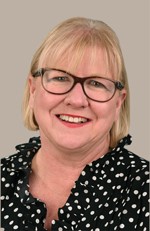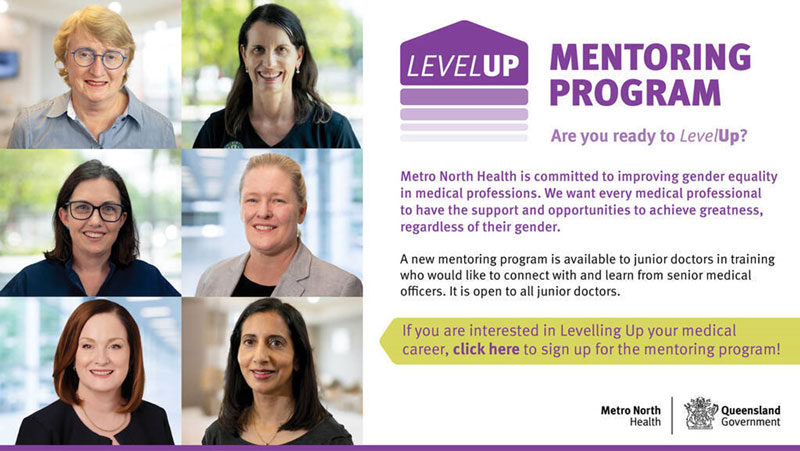
Adj Assoc Prof Jackie Hanson, Chief Executive, MN Health
Today Metro North Health celebrates International Women’s Day.
Every year on 8 March, we take some time to reflect on how far we’ve come towards gender equality and also how far we’ve got to go.
The theme for IWD in Australia this year is Cracking the Code: Innovation for a gender equal future:
“To crack the code to gender equality, we need to leverage inclusive technologies, embrace disruptive innovation and ensure access to education – to combat generational and systemic gender-based discrimination, embedded in our cultural bias for generations. We need to disrupt the current codes of behaviours, beliefs and systems that foster entrenched inequality through innovation, access, and education. We must crack our cultural, economic and social codes and behaviours that entrench inequality.
Innovation is a driver of change and by embracing new technologies and championing the unique skills and knowledge of women in science, technology, mathematics, and engineering (STEM), we can accelerate our progress towards a gender equal future.
While innovation has the power to transform lives, we know that there are still many barriers to equality. Access to inclusive digital technologies and education is critical. We must innovate to close the digital divide that keeps so many women offline and away from new opportunities.
By ensuring equal access to education for women and girls and creating clear pathways and inclusive workplaces for women in STEM, we can leverage the transformative power of inclusive innovation, so critical to cracking the code to gender equality.”
UN Women Australia
We are honoured to have a workforce across Metro North which is innovative and champions scientific and technological advances to help our community. But we know we have a long way to go – despite having a female-dominated workforce, we still have a gender pay gap. We’re working on programs to address this gap including the new Level Up mentoring program.
Everyone has the right to be safe and treated fairly and equitably in the workplace. If you experience gender discrimination or harassment, please talk to your local People and Culture business partner or an Equity Information Officer.
I encourage you to take a moment today to reflect on IWD and what it means for you – regardless of how we identify, we all can contribute to a more equitable and fair community.
Did you know? Some interesting facts about IWD and gender equality
The origin of International Women’s Day
International Women’s Day has been celebrated for over a century. In 1908, 15,000 women took to the streets in New York protesting terrible working conditions and exploitation and calling for shorter hours, better pay and voting rights.
A National Women’s Day was announced the following year by the Socialist Party of America to honour those women and in 1910 it was recognised as a day to advocate for women’s suffrage. The first International Women’s Day was held in 1911 with more than a million people at rallies across Europe.
For most of the 20th century International Women’s Day was acknowledged and celebrated by people at the grassroots level, as a rallying point for social justice. The United Nations adopted International Women’s Day in 1975, International Women’s Year.
Married women in Queensland public service
Until 1965, married women were banned from working as permanent employees in the Queensland State public sector. Women still required departmental approval to continue to work after marriage until 1973.
Equal pay for equal work
In 1950, the Commonwealth Basic Wage Case set the female rate of pay was set at only 75% of the male rate. Nearly 20 years later in 1969 the Commonwealth Conciliation and Arbitration Commission introduced the principle of ‘equal pay for work of equal value’.
More than fifty years on the gender pay gap continues to be a major contributor to gender inequality. Closing the gender pay gap is important for Australia’s economic future and reflects our aspiration to be an equal and fair society for all.
The pay gap doesn’t only reflect the hourly rate of pay. The three main contributors to the pay gap are gender discrimination, family responsibilities and workforce participation, and segregation by job type, which affect women throughout their working lives.
For more information about the gender pay gap, visit the Workplace Gender Equality Agency website.
RBWH Foundation is hosting an event celebrating International Women’s Day with Metro North’s Professor Leonie Callaway speaking today as part of a panel. Thank you to everyone across Metro North who is working to improve gender equity for our staff, patients and broader community.
Kind regards,
Jackie.
